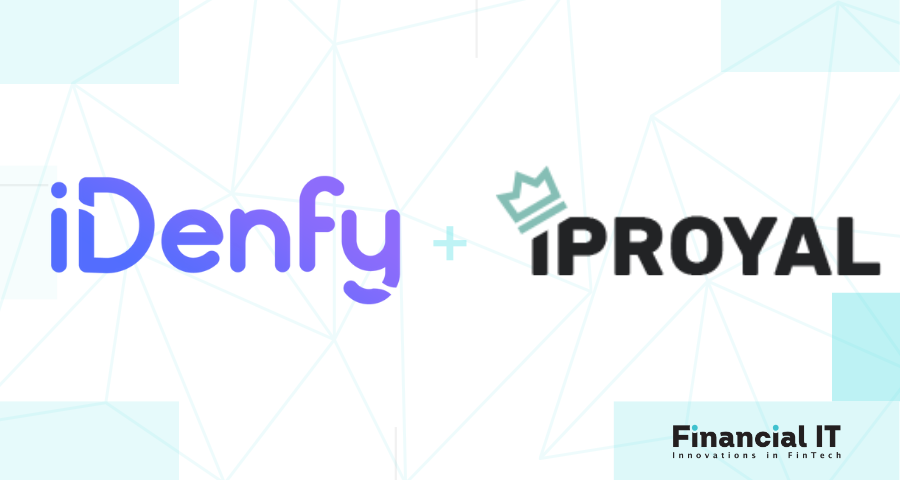Published
- 05:00 am

Monneo, the complete end-to-end payment ecosystem provider, is leading the way for Banking as a Service (BaaS) as it launches a new application programming interface (API).
Monneo’s BaaS partners and clients will be able to take advantage of the full spectrum of payments and transaction services, as well as benefit from its entire digital banking infrastructure set out within Monneo’s international banking network, without integration or set-up.
Fintechs and online businesses, that would like to offer banking services to customers via open banking platforms or payment service providers, can now partner with Monneo and access its extensive payment and banking network. The new API will allow almost instant access to all Monneo’s world-leading services in a safe, secure and regulated platform.
This latest addition of BaaS to the Monneo portfolio means fintech companies, open banking platforms and payment service providers can now access the payment network of Monneo and provide to their customers with a complete end-to-end payment ecosystem based on the company’s infrastructure.
Unlike many neo-banks or banking alternatives, Monneo offers a unique banking solution by providing access to multiple banks, IBANS and payment methods, all within one financial system.
Lili Metodieva, MD of Monneo says: “This is a major step forward for Monneo and means our partners can take advantage of the infrastructure Monneo has built over the past few years. Having our own API opens up the banking services we provide, which in turn our partners can offer to their customers.
“Monneo is now able to fully integrate banking services for all its customers as an embedded finance digital banking provider. We will provide the API as a white-labelled service, allowing our partners to pass on the benefits directly to their customers, strengthening their own financial payments ecosystem.
“For any business, being able to integrate BaaS is a no-brainer – it saves time and money, not to mention having all the regulatory side of the banking processes set up, ready to plug in.
“It has been such a difficult time for businesses and with tough economic times ahead, integrations and embedded banking experiences that allow businesses to focus on what makes them money, rather than getting caught up in lengthy administrative and regulatory delays, are more important than ever.
“The Monneo brand continues to grow, and we are committed to providing the most complete end-to-end eCommerce payments ecosystem for merchants across the world.”
The announcement represents another major step in Monneo’s broader international expansion plans, which recently announced entry into the LatAm region, including the launch of its service in Brazil.
As a business, Monneo continues to connect thousands of online merchants to a network of EU and international banks, offering international payments in 134 different currencies and a range of leading cryptocurrencies.
Related News
- 03:00 am

Fundof, a platform that provides smart payments for creators, has partnered with Onfido and Intergiro, to launch a free Visa™ debit card and payment account conceived for creators, enabling them to spend and transfer their earned donations instantly.
Fundof solves two issues every creator faces: having to combine bio link tools with different online payment services and, worse, waiting days or longer for funds after receiving donations from fans. Fundof provides a bio link tool with an integrated tip jar, plus an account featuring a free Visa debit card, all in one service. On their Fundof profiles, users can create a storefront including all their valuable links and accept donations on the same page. Thanks to the Visa card, users can instantly spend the tips and payments they receive through Fundof, without having to wait for a bank transfer or extra fees.
Fundof is partnering with Onfido and Intergiro to onboard customers to the Fundof platform in 30 European countries, including France, Netherlands and Germany. Content creators are able to sign up by simply taking a photo of their government-issued identity document (ID) and a selfie. Onfido first checks that the ID is genuine and not fraudulent, and then matches it to the user’s selfie. This ensures the person presenting the identity is its legitimate owner and is physically present, mitigating attempts of creating fake accounts, money laundering or spreading false information.
After this 30-second process of identity verification and confirmation from Interigo’s automated onboarding system, content creators are then given a free Fundof payment account and Visa debit card powered by Intergiro's embedded banking technology, so they can immediately spend, transfer and receive funds from followers all over the world straight from their Fundof account.
"Fundof makes interacting with fans and receiving support easy and instant. In many countries, people don't pay in cash anymore, but now fans can tip via a QR code and we receive payment instantly ready to use with the Visa debit card. This alleviates the burden of having to carry around a bunch of heavy change from the tips we get," said Johannes, from the Berlin-based band Bad Hammer.
"Onboarding onto the platform was quick and seamless, and fans can be reassured we are the real Bad Hammer band and not a fraudulent account, thanks to the identity verification process. Fundof has changed the way we operate as a band as we can stay connected with our fans through the profile page with all the relevant links to our music, videos, our merchandise, and our social pages. And as it integrates with the direct payment function, the Fundof debit card gives instant access to funds after a tip from a fan. We can receive tips and the next second spend it towards the next music video or on a nice cup of coffee."
"Fundof is all about seamless tipping and instant access to funds, and the only way to achieve this in a secure and trusted way was through this unique collaboration with Onfido and Intergiro," said Joakim Hultin, co-founder of Fundof. "We wanted to create the ultimate tool to help content creators get paid and for their loyal fans to be able to support with just one click on any platform."
“Being able to verify the identity of Fundof users helps build trust throughout its community of content creators,” said Alex Valle, Chief Product Officer at Onfido. “Users increasingly expect a user-friendly and fast digital experience, and we’re pleased to be supporting Fundof to scale and meet regulations while mitigating fraud. Onfido provides an experience that is both fast and secure, enabling a transparent and safe environment for content creators to get rewarded from their followers.”
“We are delighted to announce our partnership with Fundof and Onfido,” said Adam Sadler, Chief Revenue Officer at Intergiro.
“Accessing our embedded banking APIs allows any business to add financial services to their business model. We love that Fundof has identified an opportunity to service a quickly growing market of content creators with a truly innovative product.”
Related News
- 02:00 am

Red Hat, Inc., the world's leading provider of open source solutions, today announced that it has named Matt Hicks as its president and chief executive officer. Hicks, who previously served as Red Hat’s executive vice president of Products and Technologies, succeeds Paul Cormier, who will serve as chairman of Red Hat.
Known as a hands-on leader within Red Hat, Hicks joined the company in 2006 as a developer on the IT team. He quickly rose via leadership positions across the organization, helping Red Hat solidify itself as the open hybrid cloud technology leader. Most notably, Hicks was a foundational member of the engineering team that developed Red Hat OpenShift which has grown into the backbone for hybrid cloud deployments across industries, now serving as the industry’s leading enterprise Kubernetes platform. He has remained at the vanguard of hybrid cloud computing and Red Hat’s product strategy since then.
As executive vice president of Products and Technologies, Hicks was responsible for the entirety of Red Hat’s product strategy and engineering. Notably, under Hicks’ leadership, Red Hat’s open hybrid cloud strategy and portfolio have expanded to help customers build, deploy and manage any application, anywhere, from on-premises environment, to multiple clouds, and to the edge. This includes delivering new managed cloud services that help customers speed the development of cloud-native applications, new capabilities to accelerate AI development, product variants enabling edge use cases and new security approaches that span hybrid cloud environments.
Open-source software is the IT industry’s innovation engine. With more than 25 years of experience in Linux, a background in computer engineering, industry vision and business acumen, Hicks is well-regarded for his work with customers and partners to solve the next generation of IT challenges with open source innovation.
Cormier, who was named president and CEO in 2020, has a 21-year tenure at Red Hat and during that time he has driven much of the company’s open hybrid cloud strategy, playing an instrumental role in the expansion of Red Hat’s portfolio to a full, modern IT stack based on open source innovation. His efforts to transform Red Hat Linux from a freely downloadable operating system to a subscription model with Red Hat Enterprise Linux, was a pivotal moment. His leadership solidified Red Hat as an industry leader and paved the way for the open innovation that is at the heart of the hybrid cloud and modern IT. RHEL is now the industry’s leading enterprise Linux platform, powering more than 90% of Fortune 500 organizations and touching $13 trillion in global business revenues in 2022. With RHEL as the foundation for an open hybrid cloud, Red Hat is creating the future of enterprise IT.
Before much of the industry, Cormier championed a vision for an open hybrid cloud, giving customers the flexibility to deliver any app, anywhere on any infrastructure from the edge and bare metal to multiple public clouds in a common, more consistent manner. As chairman, he will continue his efforts to help customers bring that vision to life. In his new role, Cormier will serve as Red Hat’s strategic touchstone and key advisor. His focus will continue to be on scaling the company and accelerating customer adoption of open source technology to build their open hybrid cloud architecture. Having led more than 26 acquisitions at Red Hat, Cormier will also work closely with Red Hat leadership on future M&A strategies. Since Red Hat’s acquisition by IBM in 2019, Cormier has been instrumental in scaling and accelerating Red Hat while maintaining the company’s market neutrality. He will continue to work alongside IBM chairman and CEO, Arvind Krishna in this capacity. Both Cormier and Hicks will report to Krishna.
Matt Hicks, president and CEO, Red Hat:
“When I first joined Red Hat, I was passionate about open source and our mission, and I wanted to be a part of that. I am humbled and energized to be stepping into this role at this moment. There has never been a more exciting time to be in our industry and the opportunity in front of Red Hat is vast. I’m ready to roll up my sleeves and prove that open source technology truly can unlock the world’s potential.”
Paul Cormier, chairman, Red Hat:
“Matt is the exemplification of a true Red Hatter and is absolutely the right person to step into this role. His experience across different parts of our business has given him depth and breadth of knowledge about how we can best work together to scale and remain the open hybrid cloud leader. He understands our product strategy and the direction the industry is moving in a way that’s second to none. As chairman, I’m excited to get to work with our customers, partners, and Matt in new ways. My focus moving forward will be on helping customers drive innovation forward with a hybrid cloud platform built on open source technology. Open source technology has won the innovation debates and whatever the future looks like, it’s going to be built on open source technology and Red Hat will be there."
Arvind Krishna, chairman and CEO, IBM:
“Red Hat serves as the foundation of so many clients’ technology strategies because of its open-source and hybrid cloud capabilities. Matt’s deep experience and technical knowledge of Red Hat’s entire portfolio makes him the ideal leader as Red Hat continues to grow and to develop innovative, industry-leading software.”
Related News
- 04:00 am

Hashdex, a leading global crypto-focused asset manager, today announced its crypto Exchange Traded Products (ETPs) that track crypto multi-asset indices attracted US$117.9 million from global investors in the first half of 2022. The figure is more than all of Hashdex’s competitors combined when comparing fundraising for crypto multi-asset ETPs, according to data compiled from Bloomberg. The full Hashdex report and methodology can be found here.
Hashdex currently offers six ETFs on the Brazilian stock exchange (B3) that track cryptocurrency indices, including HASH11, which replicates the Nasdaq Crypto Index™ (NCI™), an index co-developed by Hashdex to benchmark the institutionally investable crypto market. The product has already established itself as the second-largest ETF to date on B3 in the number of investors across all asset classes, with more than 150,000 investors, and has attracted more than US$80 million in the first half of 2022.
"We are pleased with the trust investors placed in our products. This result reveals the effort of our work to offer investors worldwide the best investment strategies for the crypto assets market through safe and regulated vehicles across multiple segments of the crypto ecosystem," said Samir Kerbage, Chief Product & Technology Officer at Hashdex. "Despite the current challenges within the market, we continue to see increased levels of interest and investments in our products from both existing and new investors, confirming our belief that crypto-assets are here to stay and that investors are leveraging this market downturn to position themselves for the long term."
Today's announcement builds on Hashdex's ongoing international expansion through both innovative product launches and industry-leading talent. The firm recently launched its first European product, the Hashdex Nasdaq Crypto Index Europe ETP, on the SIX Swiss Exchange under the ticker symbol SIX: HASH SW. The ETP tracks the Nasdaq Crypto Index Europe™ (NCIE™), an index designed to measure the performance of the overall digital asset market while remaining reflective of the ETP listing standards at specified European exchanges. The NCIE™ was specifically designed to be dynamic in nature, broadly representative of the market, and readily trackable by European institutional investors. Hashdex’s European presence is overseen by Managing Director and Head of Europe Laurent Kssis and European Senior Sales and Distribution Manager Benjamin Ittah, both of whom joined the firm this year, as well as Dramane Meite, Head of Product for New Markets.
The firm continues to deliver on its mission of providing global investors with access to the evolving crypto ecosystem, having recently launched DEFI11, the world's first decentralized finance ETF, WEB11, the first pure-play Web 3.0 ETF, and META11 ETF, which provides investors with diverse exposure to leading crypto assets in the blockchain culture and entertainment industry.
Related News
- 03:00 am

Bitcoin and other cryptocurrencies fell on Tuesday as investor confidence worsened, and analysts expected a different dip. Losing $2 trillion in crypto market cap over months "underscores the necessity for greater regulation," the FPC stated.
What is happening to Bitcoin?
Bitcoin's price decreased by more than 5% in the last 48 hours, falling below $20,000 to $19,500. Bitcoin rallied during the previous weekend, reaching $22,000, but has since fallen again. The mid-June $18,000 bottom is in sight.
Same pain in other cryptos. EtherETHUSD +1.14 percent, the second-largest digital asset, lost 8%. SolanaSOLUSD +0.27% and Cardano both dropped by 5%. DogecoinDOGEUSD +0.68% and Shiba InuSHIBUSD +0.69%, first intended as internet jokes, were similarly poor.
Bitcoin trades at less than one-third of its all-time high above $69,000, achieved in November 2021, and has concluded its worst quarter since 2011—the first year it cracked $1. Cryptocurrency market capitalisation has fallen from $3 trillion eight months ago to $875 billion as investors prepare for the next "crypto winter."
Bitcoin's link to stocks has contributed to the drop in digital asset values. The S&P 500 and tech-heavy Nasdaq have both tumbled into a bear market this year on investor fears of multi-decade high inflation, rising interest rates, and recession—a lousy environment for risky bets like Bitcoin.
The rout weakened the crypto business, worsening price falls and punishing market participants. Meltdowns of stablecoin Terra, lenders Celsius and Voyager Digital, and a prominent hedge fund threaten widespread contagion.
What Bank of England is Offering?
The Bank of England's Financial Policy Committee urged for "greater regulation" of the crypto asset market. The committee focuses on the central bank's financial stability responsibilities, it stated that crypto-assets don't represent a threat to the wider financial system today, but they might in the future if they grow more prevalent.
The collapse of Terra's stablecoin in May and crypto lenders blocking deposits last month spurred regulators to focus on the industry. Not to mention the $2 trillion market cap loss over months.
The bank highlighted the need for strengthened regulatory and law enforcement frameworks to address crypto-asset markets and operations. A stablecoin backed by a commercial bank deposit would bring "unwanted financial stability risk," the research says.
The U.K.'s financial industry regulator will examine Terra's failure when drafting new guidelines.
In April, the Treasury said it will establish a cryptosystem and regulate stablecoins. The UK isn't the only country seeking rules to safeguard crypto assets' financial stability. The European Systemic Risk Board, which ensures the stability of the EU's financial system, wants to develop guidelines with global authorities to reduce crypto assets that could affect the system.
What are the future projections?
Wall Street anticipates a worsening bitcoin crash. 60% of 950 investors in the latest MLIV Pulse survey predict the token will fall to $10,000, halving its value. 40% disagreed. Monday morning in New York, bitcoin slid 2.4% to $20,474.
The skewed forecast shows how gloomy investors are. Troubled lenders, failed currencies, and an end to the pandemic's easy money policies disrupted the crypto business. Retail investors were more skeptical of cryptocurrencies than institutional investors, with a quarter calling them junk. Professional investors viewed digital assets more favorably.
Consumers who lost money due to TerraUSD and bothersome intermediates like Celsius Network and Voyager Digital Ltd. will certainly appreciate the government's intervention. There is even a probability that Central banks may build their own digital currencies for digital commerce.
However, Recent price drops and central bank challenges won't dethrone Bitcoin and Ethereum, says the survey. Even while most respondents believe one of these two will still be a driving force in five years, many predict central bank digital currencies will play a key role in the financial system.
Related News

Patrick Evans
CEO at SLVA Cybersecurity
The massive surge in cybercrime, the ever-increasing number of threat vectors, and a critical skills shortage have left organisations feeling more vulnerable to cyberattacks than ever before. see more
- 03:00 am

LenDenClub, RBI registered NBFC-P2P, India's largest peer-to-peer lending platform, announced the appointment of Ashish Jain as its new Chief Business Officer - Investments. Ashish brings over two decades of market-honed experience across diverse businesses such as FMCG, Mutual Funds, and Banking in the product, business development and sales domain, driving to achieve organizational goals.
At LenDenClub, Ashish would be responsible for enhancing the channel partner network that will help financial advisors provide alternative investment opportunities to allocate their clients’ assets. In addition, expanding key partnerships across the distribution landscape in order to make LenDenClub’s P2P lending offerings more accessible.
Speaking on the appointment, Bhavin Patel, Co-founder & CEO, LenDenClub, said, "We aspire to achieve $1 Billion in Loan disbursals this financial year. In the recent past, we have made certain strategic appointments, and Ashish’s addition to the team solidifies our commitment and focus toward our intended exponential growth. Given his expertise in the leading digital transformation on the retail banking side, Ashish will not just help bring a fresh perspective to our core business strategies but will be a key driver in the growth of our Investments Business. I look forward to working closely with him and wish him all the best for the future.”
Ashish has previously worked in some of India’s marquee firms like ICICI Bank, Franklin Templeton, and ICICI Prudential AMC across multiple geographies in Sales, Marketing & Distribution, and Channel Management. His last stint was with AU Small Finance Bank, where he was responsible for the product & distribution of investment products and set up the investment practice from scratch. He has been the brain behind setting up sales & distribution across geographies for leading Mutual Fund houses.
Embarking on his new beginning, Ashish Jain, CBO - Investments, said, “Financial awareness and digitization is seeing exponential growth in India led by the fintech revolution. LenDenClub is poised to make the most of this momentum and drive digital adoption for financial products with its innovative product offerings and I am thrilled to contribute immensely to this journey.”
With record disbursements, customer additions, top-line growth, profitability, and distinctive product offerings, LenDenClub has had outstanding operational performance in FY 21–22. The business has also developed a multi-pronged plan to speed up its growth by being the go-to platform for peer-to-peer lending for the underserved investors and borrowers in the nation and helping them with various financial requirements. LenDenClub, in the recent past, selected Atal Agarwal as its Head of Initiatives and New Strategy and Mudit Agarwal as the Chief Business Officer - New Business Initiatives. This crucial strategic appointment will drive the company's growth objectives.
The company recently raised $10 million in a Series A round co-led by a consortium of investors, including Tuscan Ventures, Ohm Stock Brokers, and Artha Venture Fund.
Related News
- 02:00 am

WonderLend Hubs, a NoCode PaaS solutions provider has raised USD 1.6 million in a Seed Round led by Inflection Point Ventures. Designed and deployed in an affordable “pay as you use” microservices API architecture, its LPaaS caters to enterprises as well as newly born lenders & originators, driving lending innovation via new product/variant-launches, or accelerating existing products, particularly in under-served segments, whilst its ICM PaaS caters to automating channel incentive management for enterprises. The funds will be utilized for completing its platform as a service transformation, strengthening sales & marketing, and building a delivery excellence framework to be able to grow the business at scale.
The founding team comprises Dr. Ram Ramdas – Chief Evangelist, who heads Technology & Engineering, and Rajesh Iyer – Chief Executive Officer who drives Revenue, Business Development, and Key Partnerships.
Ankur Mittal, Co-Founder, IPV says, “We see Wonderlend Hubs as a unique opportunity that is larger than the sum of its parts. Whilst its LPaaS and ICM PaaS solutions are large, exciting independent opportunities, the synergy in their target segments presents huge cross-sell potential that they are well-positioned to tap. Even on a boot-strapped basis, they have already demonstrated market validation of all 3 dimensions through what they have achieved thus far. Their platform and delivery capabilities have already helped them to cater to clients in India and overseas, which clearly indicates their potential to grow at scale. It is commendable that they have already become a preferred provider for the insurance industry. IPV aims to further enhance its growth trajectory and help them penetrate untapped potential markets''.
IPV has been at the forefront of helping early-stage startups by helping them in growing their business. IPV believes in supporting financially and leveraging their vast CXO network to help startups grow their business too. Taking this a step further, IPV has announced the launch of Physis Capital, a $50 million fund that will be used in part to support growth-stage startups from the current IPV portfolio as part of its winner’s strategy.
WonderLend Hubs’ LPaaS functions as an integrated ‘credit gateway’ enabling even small & medium-sized lenders/loan originators to rapidly launch/scale a range of consumer and small business lending products like vehicle loans, personal loans, MSME loans, retailer finance, home loans, buy now pay later (BNPL), etc. Its ICM PaaS drives bottom line and topline benefits for enterprises by functioning as an agile and dynamic automation solution that future-proofs their variable sales compensation strategy. The architecture & capabilities offered by the firm has very wide custom-configuration capabilities at affordable price points.
Dr. Ram Ramdas, Chief Evangelist said “At Wonderlend Hubs, we are driven by the vision that true democratization of technology can happen only by putting the power of technology in the hands of the ‘business user’, free from the constraints of how it has been deployed historically. We, therefore, embraced NoCode combined with a micro-service architecture as our way to move the dial in our chosen domains, much before it became part of mainstream conversation.”
Rajesh Iyer, Chief Executive Officer said “We believe that we have struck the right intersection of technology, delivery model, and pricing in our domains and target segments. We have achieved market validation and significant business traction with a bevvy of marquee clients, especially in the BFSI domain. In IPV, we found a partner who not just believed in our story but helped us see a bigger opportunity than we had envisaged. We are privileged to have someone of IPV’s pedigree as our earliest investors as we look forward to growing not just in India, but globally.”
The digital lending industry in India is projected to be $350B by 2023. The market for No-Code platforms is starting to grow exponentially and is projected at $46B by 2025, targeting the broader enterprise software and IT services market of $1.5Tn. The ChannelTech market, by itself, is projected to grow to $6B by 2026.
Related News
- 05:00 am

The certified identity verification, fraud prevention and compliance company, iDenfy, announced a new partnership with IPRoyal, a wide-range proxy service provider. iDenfy will be responsible for verifying customers' identities through its biometric ID verification implementation on IPRoyal’s network.
As cyberattack numbers are rising, it’s expected to have high security standards in today’s digital scenery. Even though companies continue to look for more complex security measures, keeping up with the risks of online crime remains a challenge. Forbes recently reported that in 2021, the average for cyberattacks and data breaches increased by more than 15% from the previous year. The alarming statistics are evidence that the risks are real and that criminals are getting more sophisticated; therefore, cybersecurity specialists argue that keeping up with these threats is vital.
To safeguard the business and its data, IPRoyal started to look for identity verification solutions and selected iDenfy’s digital ID verification service. Like iDenfy, IPRoyal is a Lithuanian startup. The company provides different types of proxies, including Residential, Private, or Sneaker proxies. According to IPRoyal, many businesses select its services mainly for web scraping purposes. The company claims that its Residential proxy is ideal for this scenario, as it makes users indistinguishable from organic visitors.
The startup also claims that proxies are multi-functional, but they keep the user’s identity, location, and other personal information secured. That is why IPRoyal’s goal is to make sure that the users aren’t blocked or detected when they browse online. Additionally, IPRoyal now added another layer of security to its customer onboarding process through iDenfy, a company that provides remote identity verification and fraud prevention tools for businesses.
iDenfy specializes in helping companies meet identity verification requirements of Know Your Customer (KYC) and Anti-Money Laundering (AML) regulations without compromising on the user experience aspect. iDenfy will take care of the administrative part of the customer authentication process for IPRoyal, making sure that its end-to-end ID verification solution guarantees a smooth and secure onboarding experience. As per iDenfy, it takes four steps or less than a few minutes for the user to complete the whole verification process.
According to IPRoyal, iDenfy’s identity verification plugin powered by artificial intelligence and biometric authentication technology simplifies operational difficulties. The newly implemented automatic process helps IPRoyal detect fake identities and restrict suspicious customers from accessing its proxy services; this way, it safeguards the company and its data from fraud.
“In our field, ensuring a safe identity verification process for customers who have high expectations is very important. We’re happy to partner with iDenfy, a responsible company that helped us achieve this goal. Our team has noticed a change already, as the ID verification process is now more efficient and user-friendly, allowing us to convert more clients.” — said the CEO of IPRoyal Karolis Toleikis.
According to the CEO of iDenfy, Domantas Ciulde, “iDenfy’s happy to partner with IPRoayal. It’s essential to adapt and choose effective digital security measures to mitigate today’s challenging fraud risks, and identity verification is the go-to process that increases the confidence in any business.”
Related News
- 03:00 am

Sector analysis of the results from a major database monitoring survey has revealed how and why the growth, complexity, and management of database estates in Financial Services are different to other industry sectors. The results clarify the area's businesses in the sector should consider when including their database estates in digital transformation initiatives.
The global monitoring survey of 2,500 IT professionals and C-level executives was undertaken by Redgate in 2021 to discover the scenarios and challenges organizations face when monitoring their database estates. A large number of responses also provided the opportunity to dig a little deeper and compare the similarities and differences across industry sectors.
Financial Services in particular emerged as an outlier in the newly published sector insights report in four major areas:
- The size and complexity of database estates are different to other sectors, with a nuanced difference between smaller firms and those with very large database estates.
- There is far wider use of monitoring tools and the data gained from those tools is shared with more teams across the business.
- There is a need to manage people and compliance much more closely, probably prompted by the move to remote working.
- The sector is ahead of the curve in the requirement to monitor cloud and hybrid database environments.
The insights are even more pertinent, given the recent big increase in investment in the sector. KPMG’s January 2022 Pulse of Fintech report revealed global investment in the fintech market topping $210 billion in 2021, a 173 per cent increase in investment activity over 2020. Notable, one of its four trends to watch out for in 2022 is an increasing focus on the modernization of core banking platforms to reduce the reliance on legacy infrastructures and facilitate better customer experiences.
While the investment is there, and there is a willingness and an urge to upgrade IT systems and processes, issues remain. As Deloitte’s 2022 Banking and Capital Markets Outlook report observe: “Even though digital transformation is going ahead at full speed, these efforts tend to be incremental, localized, and fragmented, resulting in a pervasive and pernicious ‘technology trap.’ This is preventing many banks from realizing the full potential of their investments.”
Hence the value of the Redgate insights reports in giving businesses in the sector a deeper understanding of the issues and the challenges they face when monitoring their database estates. By providing a benchmark of results businesses can use to compare their own efforts against those of their peers, future investment in their database estates can be directed more wisely.
Businesses in the sector can gain a full picture by downloading The State of Database Monitoring in Financial Services insights report online.









